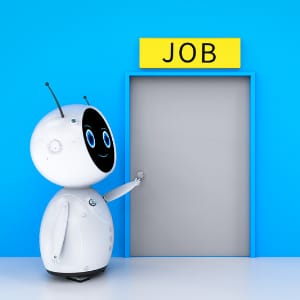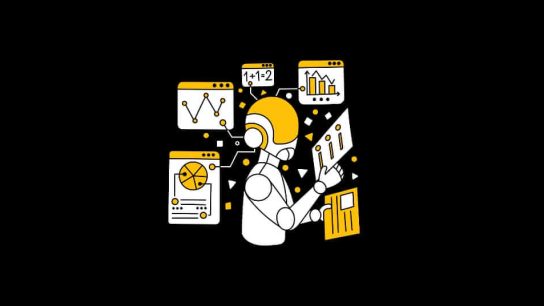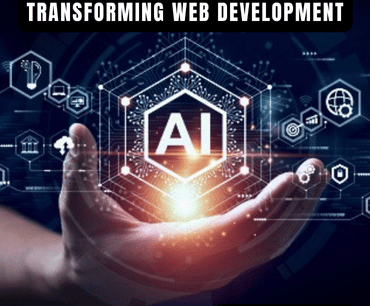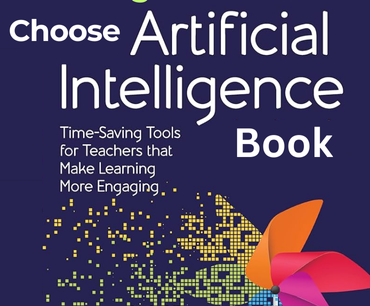The Impact of (AI) on the labour market in the next five years
Artificial intelligence (AI) is going to change the planet altogether. Of course the job industry is no exception and new jobs will be created by (AI) in near future.
Artificial intelligence (AI) is one of our most disruptive and innovative technologies. It is changing the way various industries operate and has a profound impact on the global labor market. In the next five years, AI will change the job market dynamics, and AI will highly influence the labour market.
Future of Jobs Report 2023
On May Day, the World Economic Forum’s latest “Future of Jobs Report 2023” shows that in the next five years, nearly a quarter of the world’s jobs will be lost due to artificial intelligence, digitalization and other economic developments such as green energy transformation and supply chain reshoring. Changes occur.
About 75% of companies surveyed said they expect to adopt artificial intelligence technology within the next five years. The report predicts that AI will eliminate up to 26 million record-keeping and administrative positions, such as cashiers, ticket takers, data entry and accountants.
However, with big data analytics, management technology, and cybersecurity becoming the biggest drivers of job growth, the net impact of most technologies over the next five years will be positive.

Job opportunities and skills demand
This not only brings new job opportunities and skills demand, but also brings the risk of job disappearance and skills lagging behind. Therefore, how to deal with the challenges and opportunities that artificial intelligence brings to future employment has become an important issue that governments, enterprises and individuals of all countries need to pay attention to and think about.
Artificial intelligence will create more new types of jobs
The development and application of artificial intelligence have brought new growth points and competitive advantages to various industries, giving rise to many new kinds of jobs.
According to the WEF report, 69 million new jobs will be created globally in the next five years, most related to technology and digitalization.
Fastest-growing positions are artificial intelligence and machine learning experts
The fastest-growing positions are artificial intelligence and machine learning experts, sustainability experts, business intelligence analysts, and information security experts. These positions require advanced data analysis, programming, innovation, and communication skills.
In terms of absolute numbers, digital commerce will create the most jobs: the number of new digital positions, such as e-commerce experts, digital transformation experts, and digital marketing and strategy experts, is expected to grow by about 2 million. These positions require good market insight, customer service, project management, and teamwork skills.
In addition to technology and digitalization, macro trends such as green transformation, ESG standards and supply chain localization are also key drivers of job creation.
World seeks more sources of renewable energy
As countries worldwide seek more renewable energy sources, positions such as renewable energy engineers and solar installation and systems engineers will be in high demand. Investments can also create broader sustainability jobs, such as sustainability specialists and environmental protection professionals, which are expected to grow by 33% and 34%, respectively, creating approximately 1 million jobs.
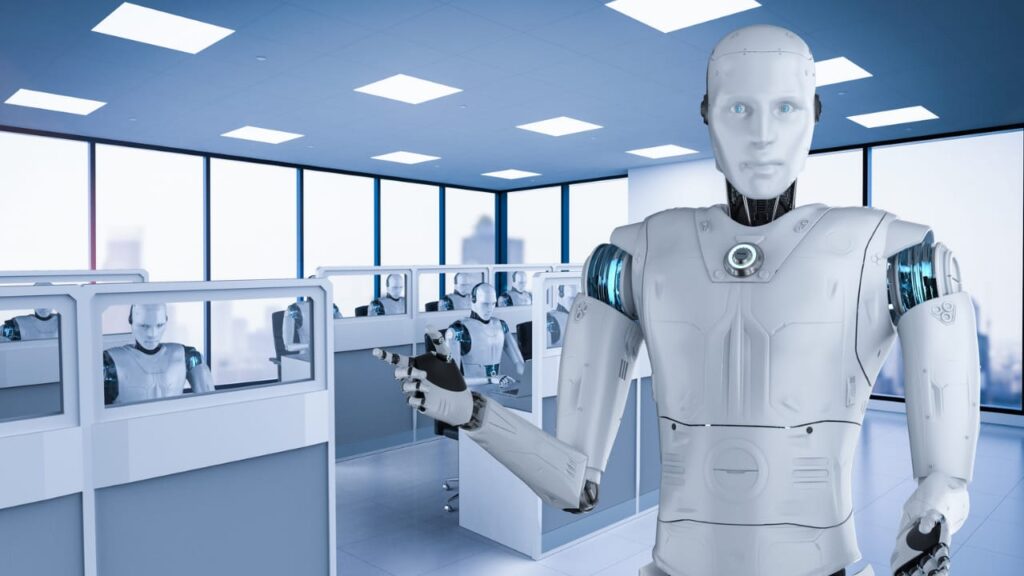
Additionally, education and agriculture saw the most significant net job gains. The number of jobs in the education industry is expected to grow by about 10%, which means 3 million new vocational education teacher positions, university and various higher education teacher positions. Positions for agricultural professionals, especially agricultural equipment operators, produce graders and sorters, are expected to grow by 15% to 30%, creating 4 million new jobs.
Artificial intelligence will also eliminate more low-skilled jobs.
The development and application of artificial intelligence will also have a substitution effect on some low-skilled, repetitive, and standardized positions, causing the demand for these positions to decrease or disappear.
According to the WEF report, 85 million jobs will be lost globally in the next five years, most of which are record-keeping and administrative positions. About 75% of companies surveyed said they expect to adopt artificial intelligence technology within the next five years.
AI will eliminate up to 26 million recording and administrative positions
The report predicts that AI will eliminate up to 26 million recording and administrative positions, such as cashiers, ticket takers, data entry and accounting. These positions usually require lower education levels and professional skills and are easily simulated and replaced by artificial intelligence.
In addition to record-keeping and administrative positions, artificial intelligence will also impact other low-skill or medium-skill positions. For example, assembly and machine operators in the manufacturing industry, construction workers in the construction industry, customer service representatives in the service industry, chefs and waiters in the catering industry, etc. These positions typically require some degree of physical labour or human interaction but robots or intelligent software can also be replaced or assisted. According to the WEF report, the demand for these positions will decrease by 15%, 9%, 6% and 4% respectively in the next five years.
The substitution effect of artificial intelligence on low-skilled or medium-skilled jobs will exacerbate the problems of employment polarization and income inequality.
On the one hand, low-skilled or medium-skilled workers will face the risk of unemployment or salary reduction, and they may need to be retrained or change careers to adapt to new job market demands;
On the other hand, highly skilled workers will enjoy more job opportunities and income growth, and they can use artificial intelligence to improve their productivity and creativity. Therefore, artificial intelligence will increase the income gap and social differentiation between workers with different skill levels.
How to deal with the impact of artificial intelligence on employment?
Faced with the challenges and opportunities that artificial intelligence brings to the job market, governments, enterprises and individuals in various countries need to take active and effective measures to deal with them.
What should you do to compete (AI) impact on your business?
3.1 Education and training
Strengthen education and training to improve the skill level and adaptability of workers. Education and training are critical factors in improving workers’ ability to work with AI. The government should increase investment and support in primary education, vocational education and lifelong education, reform the education system and curriculum, and cultivate workers’ digital literacy, innovative thinking, cross-field knowledge and general skills. Enterprises should strengthen on-the-job training and retraining for employees, provide flexible and diverse learning channels and resources, and help employees improve their literacy and adapt to the requirements of the artificial intelligence era.
3.2 The government should increase its support
The education and training create an environment conducive to the development of artificial intelligence and stable employment. The government should increase its support for the artificial intelligence industry, promote the widespread application of artificial intelligence technology in all walks of life, and create more job opportunities. The government should improve the employment service system and strengthen employment guidance, vocational training, social security and other support for unemployed or transferred workers to help them achieve employment and re-employment as soon as possible. The government should strengthen the formulation and supervision of laws, regulations and ethical norms in the field of artificial intelligence, prevent the negative impact of artificial intelligence on employment, and protect the legitimate rights and interests of workers
3.3 Enterprises should strengthen technological innovation
Enterprises should strengthen technological innovation and enhance the synergy between artificial intelligence and employment. Enterprises should increase investment in the research and development and application of artificial intelligence technology, explore new models and methods oriented by scenario innovation, and improve production efficiency and product quality. Companies should strengthen on-the-job training and retraining for employees, provide flexible and diverse learning channels and resources, help employees adapt to changes in artificial intelligence technology, and improve employees’ professional skills and innovation capabilities. Enterprises should optimize their organizational structure and management model, achieve human-machine collaboration and complementary advantages, and improve employee participation and satisfaction.
Positive and healthy atmosphere for the development of artificial intelligence
The society should strengthen the guidance of public opinion and create a positive and healthy atmosphere for the development of artificial intelligence. All sectors of society should view the impact of artificial intelligence on employment objectively and rationally, neither exaggerating its threats nor overly ignoring its opportunities. All sectors of society should actively publicize the contribution of artificial intelligence to economic and social development and improve of people’s livelihood and enhance public confidence and support for the development of artificial intelligence. All sectors of society should actively advocate values such as lifelong learning, independent innovation, and win-win cooperation, and stimulate public enthusiasm and initiative for the teaching and applying artificial intelligence.

